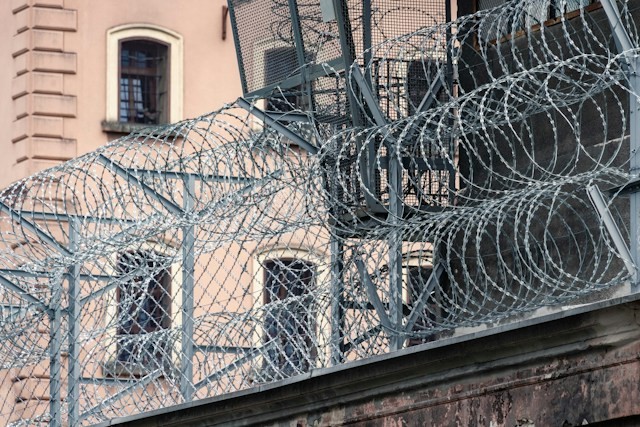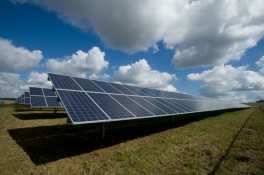
A hidden path to America's dinner tables is a former Southern slave plantation, now the largest maximum-security prison in the country, the Louisiana State Penitentiary, according to The Associated Press' comprehensive two-year investigation.
Prison workers are some of the most vulnerable in America who may risk parole or face punishments like solitary confinement if they refuse to work and are frequently denied protections that most other full-time workers receive, even in cases of serious injury or death on the job.
Hidden Workforce Linked to the World's Largest Food Companies
Unmarked trucks transport cattle raised in prison, where men, predominantly people of color, are sentenced to hard labor for minimal pay or sometimes nothing. A local rancher then buys these cattle, and, following a journey of 600 miles, they reach a Texas slaughterhouse and enter the supply chains of major companies like McDonald's, Walmart, and Cargill.
The Associated Press revealed intricate connections between some of the world's largest food companies and popular brands to jobs performed by U.S. prisoners, tying hundreds of millions of dollars worth of agricultural products to goods sold on the open market, including Kroger, Target, Aldi, and Whole Foods. Some of these goods are also exported to countries with restrictions for using forced or prison labor. The products made by these prisoners end up in the supply chains of various items commonly found in American kitchens, such as Frosted Flakes cereal, Ball Park hot dogs, Gold Medal flour, Coca-Cola, and Riceland rice.
Legality of Forced Labor as a Punishment for a Crime
Numerous companies that purchase directly from prisons are breaking their rules against using this type of labor. However, it is entirely legal, rooted mainly in the necessity for labor to aid in reconstructing the South's economy after the Civil War. The 13th Amendment to the Constitution prohibits slavery and involuntary servitude, except as a punishment for a crime. This clause is currently being challenged on the federal level, and efforts to eliminate similar language from state constitutions are expected to reach the ballot in multiple states this year.
Certain prisoners work on the same plantation soil where cotton, tobacco, and sugarcane were harvested more than 150 years ago, with some present-day scenes resembling the historical past, with men in Louisiana, a state with one of the highest incarceration rates, working on the "farm line," bending over crops that extend far into the distance.
Brutality on Prison Laborers
Willie Ingram spent 51 years in the state penitentiary known as Angola, where he worked on various crops like cotton and okra. He recounted being supervised by armed guards on horseback, witnessing fellow workers passing out in triple-digit heat while having little or no water. Workers would protest by throwing their tools in the air, fully aware of the potential consequences, and describing instances of punishment as, "They'd come, maybe four in the truck, shields over their face, and they'd beat you right there in the field. They beat you, handcuff you, and beat you again."
Ingram, who pleaded guilty to a crime he claims he didn't commit, received a life sentence but was released in 2021 by a sympathetic judge at the age of 73.
The number of people behind bars in the U.S. started to increase in the 1970s when Willie Ingram entered the prison system. Today, with approximately 2 million people in prison, U.S. prison labor has evolved into a multibillion-dollar industry that goes beyond traditional images of prisoners making license plates, working on road crews, or fighting wildfires.
Correction Official's Stance on Forced Labor
According to officials and supporters, prison jobs are not always mandatory, arguing that these jobs benefit taxpayers by saving money. For instance, the food produced can be used in prison kitchens or donated to those in need. Supporters claim inmates learn valuable skills for their post-release life, fostering a sense of purpose and potentially reducing repeat offenses by repaying their debt to society. Some places even allow prisoners to shorten their sentences through work.
While many critics acknowledge that not all jobs should be eliminated, they emphasize the importance of fair pay, humane treatment, and voluntary work for incarcerated individuals, highlighting challenges faced by those with criminal records, even when they receive specialized training.
Law professor Andrea Armstrong, an expert on prison labor at Loyola University New Orleans, points out concerns about forcing incarcerated people to work in an unsafe field, saying, "They also aren't learning skills that will help them when they are released."
Companies Responses on Incorporating Prison Labor in Their Supply Chains
Some companies unknowingly incorporate prison labor into their supply chains through third-party suppliers, while others directly purchase from prisons. Major commodity traders like Cargill, Bunge, Louis Dreyfus, Archer Daniels Midland, and Consolidated Grain and Barge, which together post annual revenues exceeding $400 billion, have acquired millions of dollars worth of soy, corn, and wheat directly from prisons, which competes with local farmers. The AP contacted the companies associated with prison labor for comments, but most did not respond.
Cargill admitted to purchasing goods from prison farms in Tennessee, Arkansas, and Ohio, emphasizing that this makes up only a tiny part of their total volume, adding, "We are now in the process of determining the appropriate remedial action."
McDonald's pledged to investigate any connections to such labor, while Archer Daniels Midland and General Mills, the producer of Gold Medal flour, referred to their existing policies prohibiting suppliers from using forced labor. Whole Foods stated directly that they do not allow the use of prison labor in products sold at their stores.
Bunge mentioned that in 2021, they sold all facilities sourcing from correction departments, and they are no longer part of Bunge's footprint.
Dairy Farmers of America, a cooperative claiming to be the leading global raw milk supplier, stated that although it has purchased from correctional facilities, it currently only has one "member dairy" at a prison, and most of that milk is used internally.
RELATED ARTICLE: Fashion Brand Shein Issue: Stories Reveal Child Labor Practices, Bad Working Conditions
© 2017 Jobs & Hire All rights reserved. Do not reproduce without permission.




